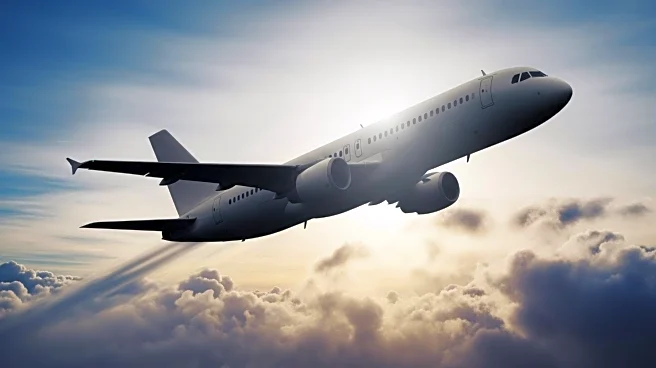What's Happening?
Air Lease, a prominent aircraft leasing firm founded by Steven Udvar-Házy, has agreed to a $7.4 billion acquisition deal that will take the company private. The acquisition is led by Japan's Sumitomo and SMBC Aviation Capital, with participation from asset managers Apollo and Brookfield. Shareholders of Los Angeles-based Air Lease will receive $65 per share, representing an 8% premium over the previous closing price. The deal values the company, including debt, at approximately $28.2 billion. This move is part of a broader trend of consolidation within the aircraft leasing industry, which has seen rental rates soar due to a shortage of aircraft caused by the COVID-19 pandemic and supply chain disruptions.
Why It's Important?
The acquisition of Air Lease highlights significant consolidation in the aircraft leasing industry, which owns over half of the world's passenger jets. This consolidation is crucial as airlines face financial pressures from oversupply and reduced fares, impacting profitability. The deal allows the acquiring companies to expand their scale and market presence, potentially leading to more competitive leasing rates and improved financial stability for airlines. The transaction reflects strategic efforts to capitalize on market growth opportunities in the aviation sector, which is recovering from pandemic-related challenges.
What's Next?
The acquisition is expected to close in the first half of 2026, with the new company headquartered in Dublin. As the industry continues to consolidate, airlines may need to reassess their fleet strategies and leasing agreements to adapt to changing market dynamics. Stakeholders will likely monitor the impact of this consolidation on rental rates and aircraft availability, which could influence airline operations and profitability. The deal may also prompt further mergers and acquisitions within the sector as companies seek to enhance their competitive edge.
Beyond the Headlines
The consolidation in the aircraft leasing industry raises questions about market competition and the potential for monopolistic practices. As fewer companies control a larger share of the market, regulatory scrutiny may increase to ensure fair pricing and access for airlines. Additionally, the deal underscores the importance of strategic partnerships and investment in the aviation sector, which is crucial for long-term growth and sustainability.










